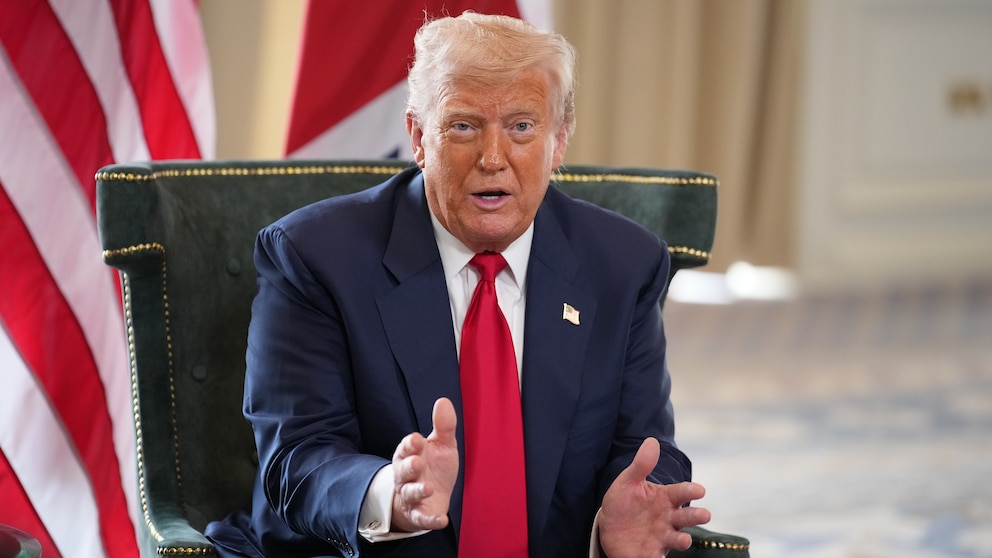Yes, you should still study computer science. The way to get the most out of AI is to have a base understanding of your craft. AI then is a force multiplier in what you can accomplish. This applies to every field whether you're a doctor, lawyer, artist, marketer, or engineer. https://t.co/DjPHCNyayQ
— Aaron Levie (@levie) August 28, 2025
The Convergence Age: Ten Forces Reshaping Humanity’s Future
Kalkiism: The Economic And Spiritual Blueprint For An Age Of Abundance
The Last Age: Lord Kalki, Prophecy, and the Final War for Peace
The Protocol of Greatness (novel)
A Reorganized UN: Built From Ground Up
The Drum Report: Markets, Tariffs, and the Man in the Basement (novel)
World War III Is Unnecessary
Grounded Greatness: The Case For Smart Surface Transit In Future Cities
The Garden Of Last Debates (novel)
Deported (novel)
Empty Country (novel)
Trump’s Default: The Mist Of Empire (novel)
The 20% Growth Revolution: Nepal’s Path to Prosperity Through Kalkiism
Rethinking Trade: A Blueprint for a Just and Thriving Global Economy
The $500 Billion Pivot: How the India-US Alliance Can Reshape Global Trade
Trump’s Trade War
Peace For Taiwan Is Possible
Formula For Peace In Ukraine
A 2T Cut
Are We Frozen in Time?: Tech Progress, Social Stagnation
The Last Age of War, The First Age of Peace: Lord Kalki, Prophecies, and the Path to Global Redemption
AOC 2028: : The Future of American Progressivism
Economists: Trump’s New Tariff Rules Will Fuel Inflation
In Trump’s Second Term, a Bolder President Charges Ahead Unchecked
Nancy Pelosi's primary challenger, a founding engineer at Stripe, may be even wealthier than her
The Convergence Age: Ten Forces Reshaping Humanity’s Future
Kalkiism: The Economic And Spiritual Blueprint For An Age Of Abundance
The Last Age: Lord Kalki, Prophecy, and the Final War for Peace
The Protocol of Greatness (novel)
A Reorganized UN: Built From Ground Up
The Drum Report: Markets, Tariffs, and the Man in the Basement (novel)
World War III Is Unnecessary
Grounded Greatness: The Case For Smart Surface Transit In Future Cities
The Garden Of Last Debates (novel)
Deported (novel)
Empty Country (novel)
Trump’s Default: The Mist Of Empire (novel)
The 20% Growth Revolution: Nepal’s Path to Prosperity Through Kalkiism
Rethinking Trade: A Blueprint for a Just and Thriving Global Economy
The $500 Billion Pivot: How the India-US Alliance Can Reshape Global Trade
Trump’s Trade War
Peace For Taiwan Is Possible
Formula For Peace In Ukraine
A 2T Cut
Are We Frozen in Time?: Tech Progress, Social Stagnation
The Last Age of War, The First Age of Peace: Lord Kalki, Prophecies, and the Path to Global Redemption
AOC 2028: : The Future of American Progressivism
The Convergence Age: Ten Forces Reshaping Humanity’s Future
Kalkiism: The Economic And Spiritual Blueprint For An Age Of Abundance
The Last Age: Lord Kalki, Prophecy, and the Final War for Peace
The Protocol of Greatness (novel)
A Reorganized UN: Built From Ground Up
The Drum Report: Markets, Tariffs, and the Man in the Basement (novel)
World War III Is Unnecessary
Grounded Greatness: The Case For Smart Surface Transit In Future Cities
The Garden Of Last Debates (novel)
Deported (novel)
Empty Country (novel)
Trump’s Default: The Mist Of Empire (novel)
The 20% Growth Revolution: Nepal’s Path to Prosperity Through Kalkiism
Rethinking Trade: A Blueprint for a Just and Thriving Global Economy
The $500 Billion Pivot: How the India-US Alliance Can Reshape Global Trade
Trump’s Trade War
Peace For Taiwan Is Possible
Formula For Peace In Ukraine
A 2T Cut
Are We Frozen in Time?: Tech Progress, Social Stagnation
The Last Age of War, The First Age of Peace: Lord Kalki, Prophecies, and the Path to Global Redemption
AOC 2028: : The Future of American Progressivism
The Convergence Age: Ten Forces Reshaping Humanity’s Future
Kalkiism: The Economic And Spiritual Blueprint For An Age Of Abundance
The Last Age: Lord Kalki, Prophecy, and the Final War for Peace
The Protocol of Greatness (novel)
A Reorganized UN: Built From Ground Up
The Drum Report: Markets, Tariffs, and the Man in the Basement (novel)
World War III Is Unnecessary
Grounded Greatness: The Case For Smart Surface Transit In Future Cities
The Garden Of Last Debates (novel)
Deported (novel)
Empty Country (novel)
Trump’s Default: The Mist Of Empire (novel)
The 20% Growth Revolution: Nepal’s Path to Prosperity Through Kalkiism
Rethinking Trade: A Blueprint for a Just and Thriving Global Economy
The $500 Billion Pivot: How the India-US Alliance Can Reshape Global Trade
Trump’s Trade War
Peace For Taiwan Is Possible
Formula For Peace In Ukraine
A 2T Cut
Are We Frozen in Time?: Tech Progress, Social Stagnation
The Last Age of War, The First Age of Peace: Lord Kalki, Prophecies, and the Path to Global Redemption
AOC 2028: : The Future of American Progressivism
The Convergence Age: Ten Forces Reshaping Humanity’s Future
Kalkiism: The Economic And Spiritual Blueprint For An Age Of Abundance
The Last Age: Lord Kalki, Prophecy, and the Final War for Peace
The Protocol of Greatness (novel)
A Reorganized UN: Built From Ground Up
The Drum Report: Markets, Tariffs, and the Man in the Basement (novel)
World War III Is Unnecessary
Grounded Greatness: The Case For Smart Surface Transit In Future Cities
The Garden Of Last Debates (novel)
Deported (novel)
Empty Country (novel)
Trump’s Default: The Mist Of Empire (novel)
The 20% Growth Revolution: Nepal’s Path to Prosperity Through Kalkiism
Rethinking Trade: A Blueprint for a Just and Thriving Global Economy
The $500 Billion Pivot: How the India-US Alliance Can Reshape Global Trade
Trump’s Trade War
Peace For Taiwan Is Possible
Formula For Peace In Ukraine
A 2T Cut
Are We Frozen in Time?: Tech Progress, Social Stagnation
The Last Age of War, The First Age of Peace: Lord Kalki, Prophecies, and the Path to Global Redemption
AOC 2028: : The Future of American Progressivism
The Convergence Age: Ten Forces Reshaping Humanity’s Future
Kalkiism: The Economic And Spiritual Blueprint For An Age Of Abundance
The Last Age: Lord Kalki, Prophecy, and the Final War for Peace
The Protocol of Greatness (novel)
A Reorganized UN: Built From Ground Up
The Drum Report: Markets, Tariffs, and the Man in the Basement (novel)
World War III Is Unnecessary
Grounded Greatness: The Case For Smart Surface Transit In Future Cities
The Garden Of Last Debates (novel)
Deported (novel)
Empty Country (novel)
Trump’s Default: The Mist Of Empire (novel)
The 20% Growth Revolution: Nepal’s Path to Prosperity Through Kalkiism
Rethinking Trade: A Blueprint for a Just and Thriving Global Economy
The $500 Billion Pivot: How the India-US Alliance Can Reshape Global Trade
Trump’s Trade War
Peace For Taiwan Is Possible
Formula For Peace In Ukraine
A 2T Cut
Are We Frozen in Time?: Tech Progress, Social Stagnation
The Last Age of War, The First Age of Peace: Lord Kalki, Prophecies, and the Path to Global Redemption
AOC 2028: : The Future of American Progressivism




